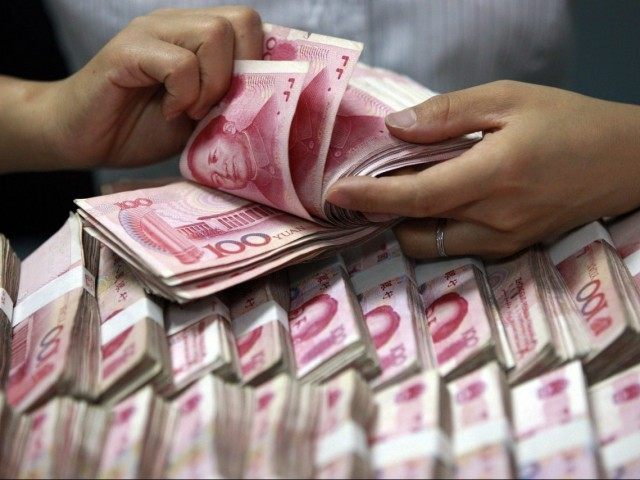Economists around the world worry about the accumulation of excessive personal debt. China’s approach to the problem is as ham-fisted as everything else the authoritarian nation does: they set up a website to name, shame, and punish “dishonest people” with debt repayment judgments against them.
Business Insider (BI) explains how China did this:
The country’s highest court publishes the names and ID numbers of “dishonest people” on its website and restricts those people from flying domestically, using high-speed trains, or enrolling their children at expensive private schools.
Defaulters are also prevented from staying at hotels with three-stars or more. They also face tougher exams if they want to join the civil service, and are charged higher fees for booking cars. The bans work by linking to a person’s ID number. Some people used their passport when travelling to circumvent the ban, but that loophole now appears to be closed.
The site was created by the Supreme People’s Court in an attempt to make people comply with verdicts to repay their debts. Restrictions are placed on “high-expenditure consumption” and “consumption not necessary to sustain normal life or businesses” for individual defaulters as well as the legal representatives and CEOs of companies that default.
Those restrictions on high-expenditure consumption are no joke. BI tells the tale of a defaulter who was slammed with a $15,000 fine for daring to fly first class. On an estimated 8.7 million occasions, people on the debt list were prevented from flying outright, while 3.4 million of them could not buy train tickets.
“It is hoped that by imposing such inconveniences on their daily lives, debtors will be encouraged to pay back the money they owe in a timely manner,” said the Supreme People’s Court in a statement quoted by Business Insider.
Last week, flamboyant tech mogul Jia Yueting became the highest-profile addition to China’s debt blacklist. He was personally named and shamed for owing $72 million to a brokerage firm, while two of his companies have been blacklisted for unpaid corporate debts. Jia racked up so much debt in his fervent effort to expand his corporate holdings that his creditors have been staging demonstrations outside his company HQ in Beijing.
As it happens, Jia is currently living in California, so the blacklist might not compromise his lifestyle all that much. If he were still in China, the blacklist would haunt his every move because the activity of citizens is so carefully monitored.
For example, in the course of reporting Jia’s starring role in China’s debt crackdown saga, the New York Times mentions another naming and shaming innovation: an internet security firm was asked to set up a system that identifies irresponsible borrowers to the people on the other end of the line every time they make a phone call.
Beijing’s ultimate objective, according to the Times, is a system that will “give each citizen a score based on spending habits, loan repayment and good behavior in public.” In other words, citizen access to debt will be used as another means of controlling their behavior.
Analysts and government officials disagree on whether China is either nervous about tumbling into a debt abyss or serenely confident its debt situation is at least as well-controlled as any other industrialized nation.
Individual and corporate debt, however, is a topic of concern around the world, and it would not be surprising to see some enthusiasm develop for aspects of China’s debt blacklist. Surely the world’s class warriors, anti-corporate crusaders, and black bloc anarchists would love the idea of naming and shaming CEOs who get in trouble for unpaid debts.
The business of controlling the financial activity of smaller individual debtors raises some deep questions about the nanny-state authoritarianism that is growing so popular on the Western left. Defenders of China’s system will say it is logical for the government to take steps to control the behavior of people who habitually accumulate debt they cannot pay off, especially because, in China, they are borrowing from government-controlled banks, and making a public example of them serves as a useful message about fiscal responsibility to the populace.
Western “liberals” have been romantically flirting with Chinese authoritarianism at least since the Obama presidency, when they could be heard wishing Barack Obama could wield the kind of power Chinese presidents do, at least temporarily. Obama himself reportedly said something along those lines to his aides.
But they also have a long tradition of vehemently resisting any policy approach that implies their favored constituents are responsible for their own situations, so they would never tolerate a program that names and shames lower-income citizens for getting in trouble with debt.
The left attacks even the most common-sense work-for-welfare programs and savages suggestions to provide welfare recipients with counseling to help them make better life decisions. Such ideas are routinely denounced as showing contempt for the poor or racist “dog whistles.” If the American left wants to follow China’s lead on socialism, they will have to be more honest about how much control over individual lives is necessary to make such systems work.

COMMENTS
Please let us know if you're having issues with commenting.